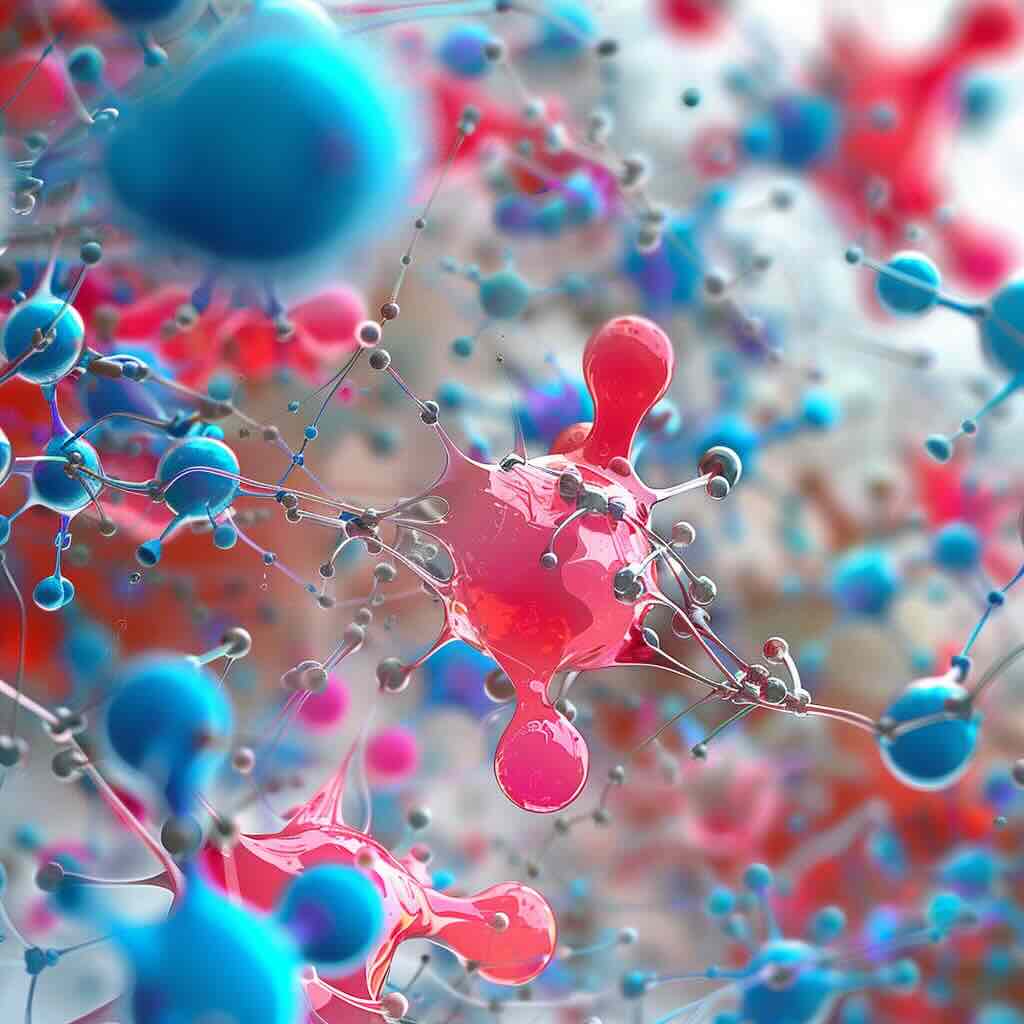How Peptide Bioregulators Work
If you've around holistic medicine, you've probably heard about the growing popularity of peptide bioregulators due to their anti-aging properties and the ability to restore the function of organs and tissues. Peptides have been shown to increase the average life span.
Though recent to the mainstream world, peptide research has been around for over 40 years. These short chains of amino acids will be a game changer in the anti-aging movement for years to come.
But one of the biggest questions we get, is how do amino acids work? And how do they activate protein synthesis?
I'll share all about that in a minute, but first let's talk about why we need them.

A PEPTIDE DEFICIENCY DEVELOPS AS WE AGE
As we age, protein synthesis within the body. Our cellular metabolism slows down and our body starts to need supplementation to maintain health. This peptide deficiency leads to loss of function and premature aging. Most supplementation, even amino acids fail to restore the key peptide functions.
Which leads us to a question:
What are the function of Peptides?

Few people know that each body function or organ has its own unique peptide bioregulator. Everything from the vascular system to the pineal gland. There are a total of around 55 in the human body (more are still being discovered).
These individualized gene switches aid in the regeneration process within the specific tissue.
There are numerous peptides in the human body - Everything from the vascular system to the pineal gland has its own bioregulator. These individualized gene switches help regenerate tissue within this specific organ or tissue.
So when this process slows down and peptide regulation becomes difficult, we see decreased function in the body. The peptide deficient tissue loses the ability to repair itself.

The Problem With Most Amino Acids
While the cell peptide protein cycles and issue with aging have been a known problem, treating the issue has been a challenge. Most proteins and amino acids have a key issue: They are not easily absorbed in the gastrointestinal tract.
Meaning that our body is unable to absorb them and get the benefits.
This is why we are seeing STEM cell treatments pop up. STEM cell treatments are based on this same understanding of the peptide protein cycle in the body.
While STEM cell treatment has an exciting future as well, bioactive peptides are more readily available.

Initial Peptide Deficiency Treatment
What makes peptide bioregulator treatment (and STEM cell treatment as well) so exciting, they actually REPAIR the problem. Unlike most dietary supplements, peptides are meant to be taken 1 time until the tissue is repaired OR one 10 day course every year for maintenance.
Peptide supplements really are a drastic difference to most other treatments. No one wants to take a medication forever if they don't have to.
How Peptide Therapy Works To Repair Protein Synthesis
Concentrated peptide bioregulators have shown the ability to launch protein synthesis and be a catalyst in reducing peptide deficiency. The peptide supplements mimic natural peptides and signal the respective body system to restore function.
In our body, we have an individual cell self regulating mechanism in our organs and tissues. When the body produces fewer proteins, we need to create more natural peptides. We can do this by supplementing with natural peptides and in some cases synthesized peptides.
The peptide molecule from the peptides helps restore peptide protein cycle in the tissue or organ. When natural and synthesized peptides are exposed to the tissue, it helps repair protein production.
This is the nudge the body needs to heal itself. The peptide resumes normal function without the need for ongoing supplementation. In short, the body is able to reduce peptide deficiency.
It's only recommended to take a follow-up course every 6 months for 10 days if need.
Are Peptide Preparations Safe?
Many people ask if peptide bioregulators are safe or if they modify the DNA fragments within cells.
Research has shown peptides have no immunogenic or mutagenic properties. They have a molecular mass of less than 5 kDa, free from foreign DNA or protein substance.
Peptides have shown the ability at an epigenetic level to be indirect or direct. Short peptides can interact with the DNA and affect gene expression. It can also inhibit aging within the cells and have antioxidant properties.
Another advantage is peptides match specific parts of the body, so the hormone chemical reactions does not happen if the peptide is not needed.
Different Peptide Combinations And Further Reading
There is so much research on how peptide bioregulators help the immune system and have shown positive anti-aging with STEM cells. There is over 40 years of research on these same peptides. The search has shown to help with a major risk factor for heart disease as well as other common issues.
Here are a few of the many research articles on Peptides:
Cellular Repair Vitamins have become mainstream
Short Peptides Protect Stem Cells From Aging
Natural Peptide Combinations
Peptide FAQ
How Ventfort Peptides Normalize Blood Vessels
Short Peptides Regulate Gene Expression
Conclusion
When we think of aging, we need to discuss protein synthesis aging. How certain proteins interact with our body and alter cell division is critical for understanding the anti-aging movement.
Natural peptides break the downward cycle and create the possibility of our body healing itself. The essential tissue specific modulators are starting to become mainstream in improving gene expression. This may help restore our immune system among other things.
It's an exciting time to see where the research and science will go with bioactive peptides.






